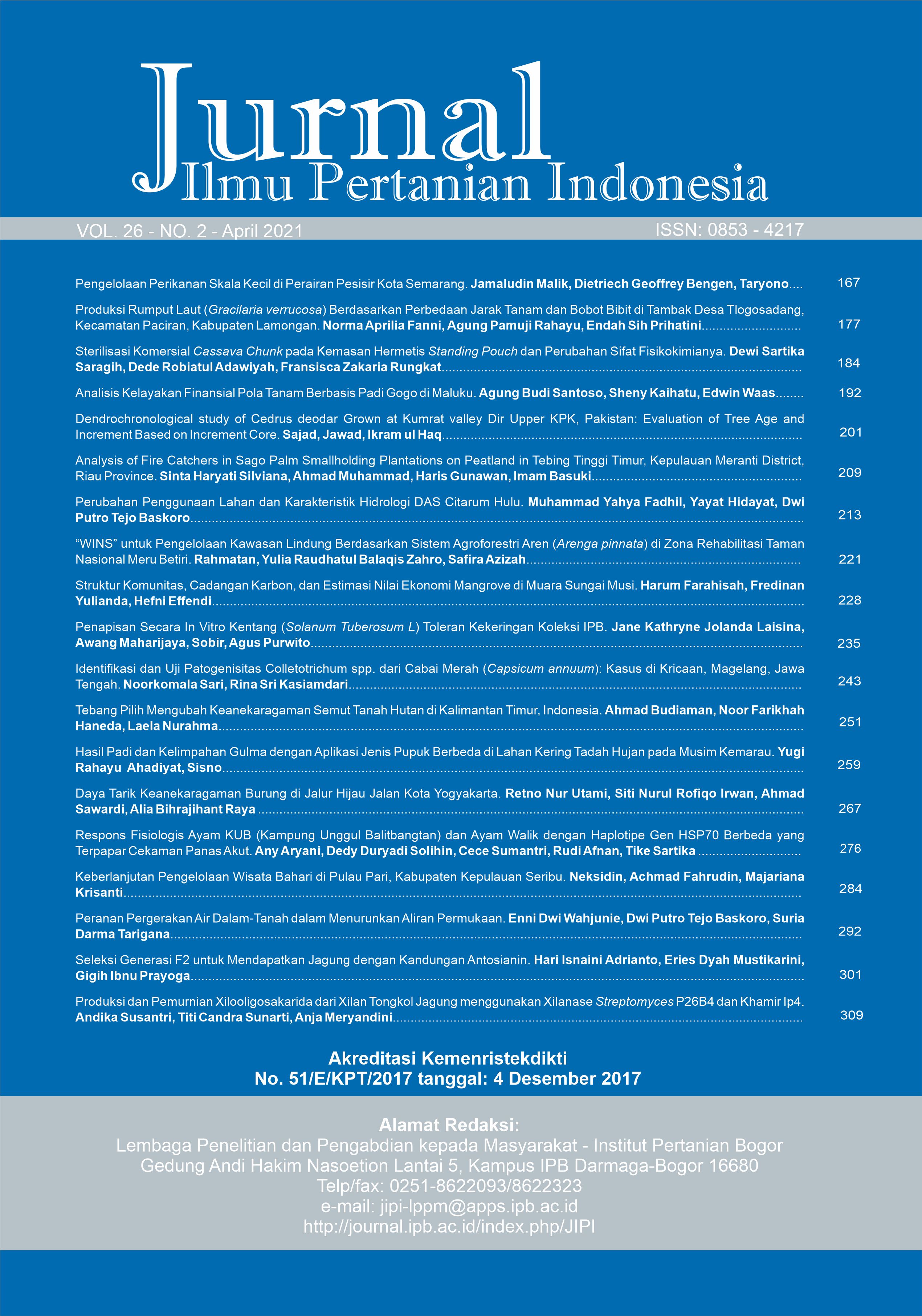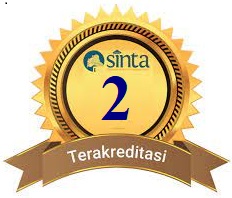Keberlanjutan Pengelolaan Wisata Bahari di Pulau Pari, Kabupaten Kepulauan Seribu
DOI:
https://doi.org/10.18343/jipi.26.2.284Abstract
Pari Island has considerable natural resource potential, so that it has the potential to have socio-economic impacts on the local community if managed properly. The current management of Pari Island is indeed focused on the management of marine tourism, and this activity has been going on for a long time and has had a very significant impact on the economic sector in Pari Island. On the other hand, marine tourism activities in Pari Island are feared to have an impact on the ecological sector, so that to achieve sustainable management, good supervision and control is needed so that its potential is maintained. The purpose of this research is to see the status of socio-economic and ecological sustainability as a result of the development of marine tourism in Pari Island. The data were collected through in-depth interviews with the people of Pari Island, apart from that the data were also obtained from primary and secondary data related to socio-ecology. To assess the level of sustainability in each dimension, a Multidimensional Scaling (MDS) analysis was carried out, in order to obtain two dimensions that had a value below 75%, namely the institutional dimension which had a value of 27.3% (bad), and the infrastructure dimension which had a value. 73.3% (Enough). Meanwhile, the other 3 dimensions, such as the ecological, economic, and social dimensions, show that the value is in the continuous category, namely> 75% so that it is very supportive of the sustainability of marine tourism business management.
Keywords: impact of marine tourism development, marine tourism, Pari Island, sustainable management
Downloads
References
Alder J, Zeller D, Pitcher T, Sumaila R. 2002. A method for evaluating marine protected area management. Coastal Management. 30: 121131. https:// doi.org/10.1080/089207502753504661
Anderies JM, Jansen MA, Ostrom E. 2004. A Framework to Analyze The Robustness of Social-Ecological Systems from An Institutional Perspective. Ecology and Society. 9(1): 18 [online] URL http:// www.ecologyandsociety.org/vol9/iss1/ art 18/. https://doi.org/10.5751/ES-00610-090118
Carpenter SR, Gundersom LH. 2001. Coping with colapse: ecological and sosial dynamics in ecosistem management. BioScience. 51: 451457. https://doi.org/10.1641/0006-3568(2001)051 [0451:CWCEAS]2.0.CO;2
Fauzi A, Anna A. 2002. Evaluasi status keberlanjutan pembangunan perikanan: Aplikasi pendekatan rapfish (studi kasus perairan pesisir DKI Jakarta). Jurnal Pesisir dan Lautan. 4: 4355.
Gossling S. 2001. The consequences of toursm for sustainable water use on tropical island: Zanzibar, Tanzania. Journal Envimanage. 61(2): 179191. https://doi.org/10.1006/jema.2000.0403
Anwar R. 2011. Pengembangan dan keberlanjutan wisata bahari diwilayah pesisir dan pulau-pulau kecil di Kota Makassar. [Tesis]. Bogor (ID): Institut Pertanian Bogor.
Susilo SB. 2003. Keberlanjutan pembangunan pulau-pulau kecil: Studi kasus Kelurahan Pulau Panggang dan Pulau Pari Kepulauan Seribu [disertasi]. Bogor (ID): Institut Pertanian Bogor.
Wong PP. 1991. Coastal Tourism in Southeas Asia. ICLARM. Education Series 13, 40p. Manila (PHL).
Downloads
Published
Issue
Section
License
This journal is published under the terms of the Creative Commons Attribution-NonCommercial 4.0 International License. Authors who publish with this journal agree to the following terms: Authors retain copyright and grant the journal right of first publication with the work simultaneously licensed under a Creative Commons Attribution-NonCommercial 4.0 International License. Attribution — You must give appropriate credit, provide a link to the license, and indicate if changes were made. You may do so in any reasonable manner, but not in any way that suggests the licensor endorses you or your use. NonCommercial — You may not use the material for commercial purposes.
























